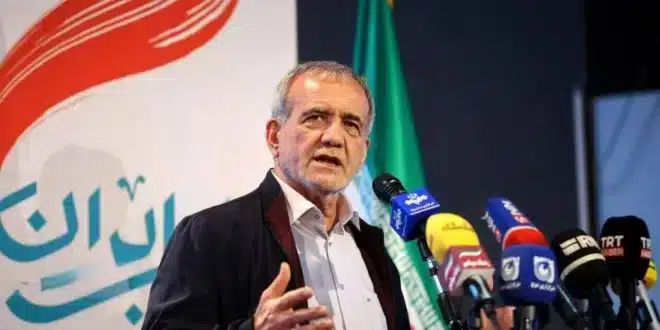On Friday, representatives from Iran, Britain, France, and Germany gathered in Geneva to discuss Iran’s nuclear program amid rising tensions, especially with Donald Trump’s potential return to the White House. The meeting was shrouded in secrecy, with little information disclosed about the topics, venue, or duration of the talks.
The significance of these discussions was highlighted by a warning from Britain’s foreign intelligence chief, Richard Moore, who emphasized that Iran’s nuclear ambitions remain a serious global security threat. Despite setbacks faced by Iran’s allies Hamas and Hezbollah, Moore pointed out that Iran’s pursuit of nuclear capabilities continues to pose a danger to international stability.
Ahead of the talks, social media exchanges indicated the tense nature of the discussions. Enrique Mora, the EU’s second-highest-ranking diplomat, described his earlier meeting with Iranian officials as a “frank exchange,” covering topics such as Iran’s military support for Russia, the need for a diplomatic resolution to the nuclear issue, regional tensions, and human rights. Meanwhile, Iran’s deputy foreign minister, Kazem Gharibabadi, criticized Europe for not taking the nuclear issue seriously and urged the EU to reconsider its approach to the wars in Ukraine and Gaza.
The meeting comes amidst heightened tensions in the Middle East, particularly between Israel and Iran, and as Iran seeks to rebuild its relationship with Europe while maintaining a firm stance on its nuclear program. A fragile ceasefire in Lebanon, following a year-long conflict with Israel, and ongoing challenges for Hamas in Gaza add to the regional complexity.
On the nuclear front, Iran’s frustration with unmet commitments, particularly regarding sanctions relief, has fueled debates over its nuclear policy. This comes as European countries, along with the U.S., have pushed for Iran to be censured by the U.N.’s atomic watchdog for failing to cooperate on nuclear issues. In response, Iran announced the launch of advanced centrifuges to increase its uranium stockpile, a move that further escalates tensions.
The International Atomic Energy Agency (IAEA) has expressed concern over Iran’s nuclear advancements, noting that it is the only non-nuclear-weapon state enriching uranium to 60 percent. Iran maintains that it has the right to pursue nuclear energy for peaceful purposes, but its enrichment activities, including plans to install 6,000 new centrifuges, violate the limits set in the 2015 nuclear deal.
Iran’s goal for Friday’s talks is to avoid renewed pressures from both the European governments and a potential return to Trump’s “maximum pressure” policy. This meeting could determine the future trajectory of Iran’s nuclear program and its relations with the West.


